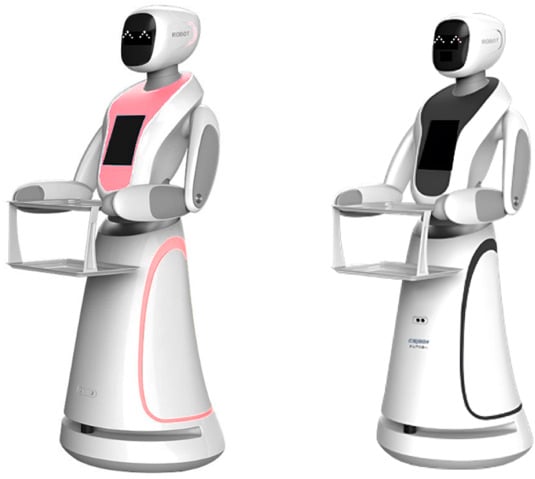The next time a robot recommends a menu item at your favorite restaurant, its gender presentation might be subtly influencing your decision more than you realize. New research from Penn State reveals that a robot’s gender characteristics can significantly impact its persuasiveness—especially when interacting with certain customer groups.
In the rapidly evolving hospitality industry, service robots have moved beyond novelty to become practical solutions for restaurants facing staffing challenges. From Bear Robotics’ Servi delivering food at TGI Fridays to Pepper taking orders at Pizza Hut, these mechanical helpers are increasingly handling complex interactions with customers. The question for businesses now isn’t just whether to use robots, but how to design them for maximum effectiveness.
The Penn State research team, led by doctoral candidate Lavi Peng along with professors Anna Mattila and Amit Sharma, discovered that robots with masculine characteristics proved more persuasive to women who felt less empowered in the service interaction. Men with similar feelings of low power showed less susceptibility to the robot’s gender presentation.
Power Dynamics and Gender Stereotypes
The study, published in the Journal of Hospitality and Tourism Management, found a surprising three-way interaction between the robot’s gender, the customer’s gender, and the customer’s perceived sense of power.
“We found women with a low sense of power were more prone to accept a male robot’s recommendations,” explains Peng. “For men with a low sense of power, we found the difference was less obvious.”
The researchers suggest these findings reflect deeper social expectations about gender and authority. Historically, men have occupied positions of greater decision-making power, creating lasting associations between male characteristics and persuasive authority.
But what about customers who felt more empowered? The research showed that people with a high sense of power were largely immune to gender effects, regardless of whether they were male or female.
“Based on our findings, consumers with high power tend to make their own judgment without relying on societal expectations. They are more confident and want to make decisions based off their own judgment,” notes Peng.
Designing for Different Contexts
For restaurants and hotels considering service robots, these findings suggest the potential for strategic deployment based on the service context. Quick-service restaurants, where customers might naturally feel less empowered due to standardized service and limited customization, might benefit from masculine-presenting robots when recommending specials or premium upgrades.
“Upselling and upgrading are all about persuasion, and results of our study suggested robots with male characteristics could be effective,” Peng said. “If a business knows its customer is female, it may want to consider using a robot with different gender characteristics than it would with a male customer.”
The researchers conducted two studies. The first involved 239 participants recruited through Amazon Mechanical Turk who were shown images of robots that differed only in color (gray or pink) to portray masculine or feminine characteristics. After receiving a breakfast burrito recommendation from the robot, participants rated its persuasiveness.
Could these findings inadvertently reinforce harmful gender stereotypes? The research team considered this question in their second study, which focused on finding ways to neutralize gender bias in robot design.
The Cuteness Factor
In a follow-up experiment with 156 university students, the researchers tested whether adding “cute” features to robot designs—like round faces and big eyes—might reduce gender-based responses. The results were encouraging: both male and female participants responded similarly to cute robots regardless of their gender presentation.
“Both male and female customers responded similarly to both the male and female robot designs,” Peng said. “For businesses that want to mitigate gender stereotypes, they can consider using a cute design for their robots.”
This finding aligns with the “baby schema” effect, which suggests that infantile features trigger nurturing responses and perceptions of warmth across cultures. These perceptions can override other social cues, including gender stereotypes.
Practical Applications for Hospitality Businesses
For restaurant managers wondering how to apply these insights, the research suggests several approaches:
- Consider using masculine-presenting robots during key recommendation moments, especially when promoting premium items
- In high-end establishments where customers feel more empowered, focus more on the robot’s expertise than its gender presentation
- Implement cute design features if you want to neutralize potential gender biases while maintaining effective service
- For quick-service restaurants where customers might feel less empowered, the robot’s gender could be particularly influential
The service robotics market is projected to grow from $42.8 billion in 2022 to $425 billion by 2032, according to Global Market Insights. As robots become more common in hospitality settings, understanding these nuanced human-robot dynamics will help businesses create more effective service experiences.
How might your own perceptions of authority and power influence your interactions with gendered technology? As restaurants increasingly adopt service robots, these subtle psychological factors may shape your dining choices in ways you never imagined.
This research was supported by the Marriott Foundation, highlighting the hospitality industry’s growing interest in understanding the complex dynamics of human-robot service interactions.
If our reporting has informed or inspired you, please consider making a donation. Every contribution, no matter the size, empowers us to continue delivering accurate, engaging, and trustworthy science and medical news. Independent journalism requires time, effort, and resources—your support ensures we can keep uncovering the stories that matter most to you.
Join us in making knowledge accessible and impactful. Thank you for standing with us!

